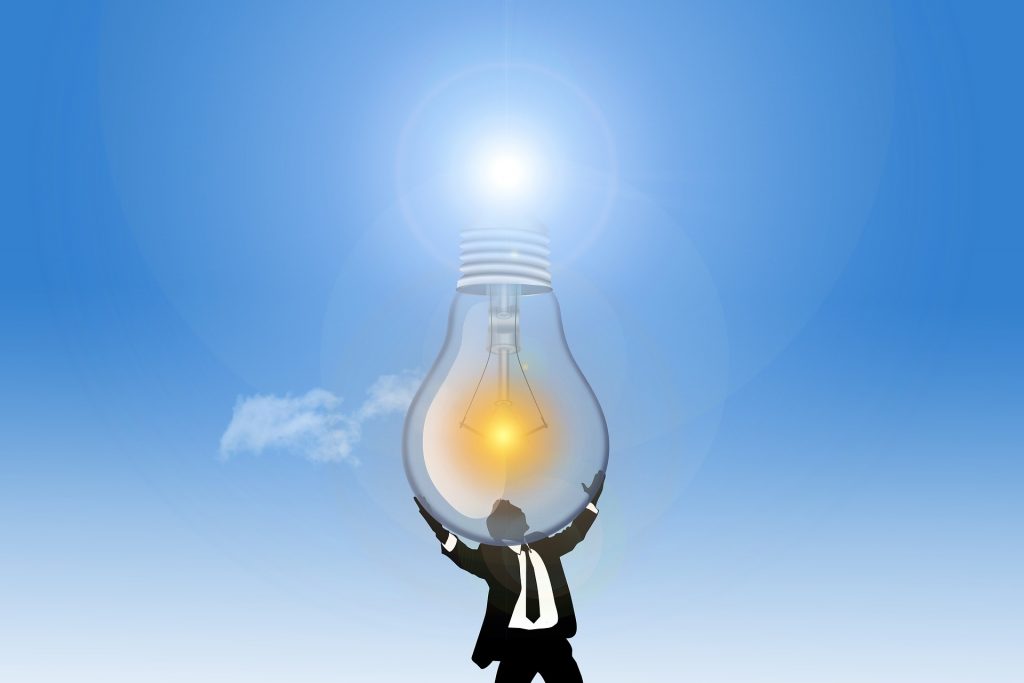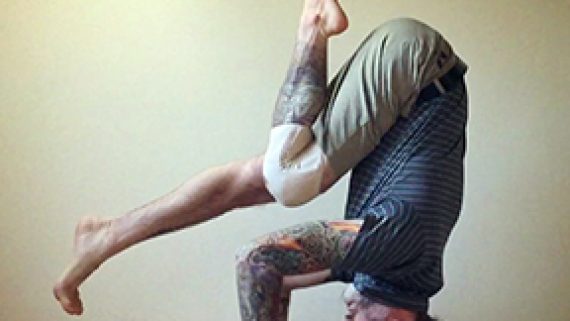Top 23 Solar Questions Answered: Why Solar is HOTTER Than Ever!
All Your Solar Questions Answered

AJ Crowell
By: “AJ” Amy Jo Crowell, Publisher Dallas Yoga Magazine, Founder Cosmic Yogi Festival & SunPro Solar Energy Specialist
So, the question is… WHY is solar technology HOTTER THAN EVER! (Pun intended)
Solar energy is the wave of the future. We have been hearing about it and watching it happen for years now, we have seen solar systems go up in neighborhoods, on commercial buildings and even stop lights and school zone signs are using solar technology. As of the end of 2018, the United States had installed enough solar power to illuminate 12.3 American homes. AMAZING!
Let us look at some statistics so we can see how home solar systems can make a major impact on reducing your carbon footprint. The majority of people 58% who have installed solar panels on their home list the fact “solar panels are clean and do not contribute to climate change” as their motivation for utilizing solar.
According to the EPA’s Greenhouse Gas Equivalencies Calculator the average home in the United States if they went solar for one year would be like:
- Avoiding adding more than 12,500 pounds of carbon dioxide to the atmosphere
- Growing 122 tree seedlings for 10 years
- Not burning over 8,000 pounds of coal
- Driving about 18,000 less
- Not charging 937,683 smartphones
Other interesting solar facts:
- The sun produces enough energy every second to cover the earth’s needs for 500,000 years.
- Of that energy, enough power reaches the earth in one hour to power all of society for one year.
- Based on the average solar production across the United States, it would take about 21,250 square miles of solar panels to meet the country’s electric needs. That is about .5% of American land, and about half of the 40,223 square miles leased by oil and gas.
- 40% of total United States electricity could be supplied by rooftops alone.
My brother at our home in Telluride, Colorado was one of the very first people I knew who believed in solar energy and had it installed over 35 years ago. It is incredible how solar energy has grown but it took a long time to get where it is today, and we still have a long way to go.
Often when people are learning about solar systems for their homes, I find they are overwhelmed and often confused by the process. Especially, when they do not know anything about solar technology. I understand completely…I have spent a long time understanding solar power along with the pros and cons.
Solar systems are not complicated, the technology can be explained easily and the process to get a home solar system can go very smoothly. However, you need to find the right people to assist you. If you are speaking to a salesperson and they are not making the process simple for you to understand then they are probably trying to take advantage of you. Possibly trying to sell you a larger system than you need and/or products that will not be beneficial to your personal needs.
As a Solar Specialist I love to educate homeowners on solar technology while assisting them in finding the right solar system for their specific needs. Just like everyone is different, every home is different and needs to be addressed on an individual basis. The first request made is for a year of the home’s electricity bills, this allows for the Solar Specialist to generate an accurate analysis of whether it would be beneficial for the homeowner to have a solar system installed. They will discuss the analysis with the homeowner, and if it is going to add positive advantages to the home then they move forward with the process.
WARNING: Be very careful when you are online and giving your information to solar companies you are not familiar with. Many of the online companies are getting your information and selling it to solar companies. They often will sell your information over and over again resulting in repeated emails and phone calls from a variety of sources.
To help you understand home solar systems, I have compiled 23 of the most asked questions:
1. What are some benefits of solar panels?
*Saves on energy costs. You often see savings immediately on your first bill!
*It’s a renewable energy source that helps protect and preserve the environment. You shrink your carbon footprint and reduce greenhouse gas emissions.
*The payment for the panels will stay the same over the next 20+ years and electricity increases on average 3% every year. So, your loan will not increase…reducing your electricity bill drastically in the future.
*On the average solar energy significantly reduces your electricity bill by 50%, on average this can amount to around a $30,000 savings for a period of 20 years.
*Net metering: You produce energy and the grid (electricity company) saves it for you to use later. It is like a credit on your account.
2. How does a solar panel system work?
A solar system is made up of connected solar panels that absorb rays from the sun and convert it to electricity. The panels are made in such a way that when the sun rays hit the surface of the panels, the solar cells convert them into DC (Direct Current) electricity. Since this form of electricity is not usable in most homes or businesses, an inverter transforms the DC energy into AC (Alternating Current). The AC electricity is connected to the grid for energy use immediately or in the future. The grid refers to the electricity company you use. Most solar homes are connected to the grid. They connect to the grid so if your system does not generate 100% of your electricity needs you are secured knowing you are connected and will continue receiving power.

3. Do solar panels work in any weather? What about at night?
Although solar panels need sunlight to create electricity, it does not have to be direct sunlight. For example, the panels can absorb the UV rays even on a cloudy, snowy or rainy day. My favorite example of this is having to put sunscreen on outside during the summer even if it is cloudy outside. If you do not… you get sun burn! OUCH! This is because the UV is still coming through the clouds. However, it is important to note the production of electricity will be lower during these days as compared when there is sunshine. The panels will generate more electricity on clear sunny days. Note that 3 of the 4 states currently leading on community solar have the least sunshine in the county – showing that solar still works in cloudy climates. (Massachusetts, New York, Minnesota and California)
Also, the panels do not generate electricity at night. This is because there is no sunlight at night, but you still have electricity because of the stored power you have saved during the day. Since you are connected to the grid, you may use a small about of energy from your electricity provider.
4. Where are your solar panels made and how durable are the solar panels?
Many solar panels are MADE IN THE USA (LG panels which are the best performance panels in the industry). The average life expectancy of most solar panels are about 35 years on average. The Solar Specialist will help you decide what panels are best for your home. Make sure to look for quality, cost effective panels that will last on the average 35+ years bringing you the best value for your money.
If someone is selling you solar panels made overseas, please be advised many of these products are not quality products. They are cheaper because they are extremely flimsy and only last 7 to 15 years. However, they will often charge you the prices of the more quality panels. These sales people are called the “trunk slammers” because they are not planning on being in the business long term.
Think about this…when was the last time you bought the absolute cheapest option available for any product or service and it made you happy for years and years to come? Remember…
“There is always someone who is willing to make something a little worse to sell it a little cheaper.”
 6. What are some benefits of solar panels?
6. What are some benefits of solar panels?
*It’s a renewable energy source that helps protect and preserve the environment. You shrink your carbon footprint and reduce greenhouse gas emissions.
*Saves on energy costs. You often see savings immediately on your first bill.
*The payment for the panels will stay the same over the next 20 years and electricity increases on average 3% every year. So, your loan will not increase.
*On the average solar energy significantly reduces your electricity bill by 50%, This can amount to an average solar savings of $30,000 for a period of 20 years.
*Net metering: You produce energy and the grid saves it for you to use later. It’s like a credit on your account.
7. Will the value of my property rise after the installation?
Various studies have shown that installing a system will rise the property value and increase the sales price. However, the value will only rise if you purchase the solar panel system and do not lease.
According to the Appraisal Journal, a home’s value increases about $20 per $1 decrease in energy costs. So, if you save $600 per year in electricity bills, the home’s value could increase by $12,000. There are other ways appraisers determine the value of solar panels, but it will increase the sales prices…as long as they are purchased and not leased.
8. What is the cost of installation and how much will I pay upfront?
Different solar panel systems have different prices and installation costs. Look for a company offering an “all inclusive price” including labor, equipment and permits. There should not be any hidden fees or surprise costs. Ask a lot of questions and understand the process.
Many companies offer programs with 0 down for installation and a 20+ year loan to pay it off. A Solar Specialist will show you the exact amount (over the next 20 years) you would be paying with a solar system versus what you would be paying without one. This way you can see the advantages of a lower monthly bill and how much you will save over time. Savings go up and up over the years when you have a home solar system! Remember, electricity increases about 3% per year and your loan payments will stay the same for 20+ years.
Also, most programs have opportunities for a new home solar system with zero upfront.
Of course, if you pay cash you get a sizable discount.
9. Is it difficult to maintain the solar panels?
Absolutely NOT! The panels are easy to maintain. Much easier than your HVAC or other appliances in your home. Since the solar panels do not have moving parts, they do not break easily and therefore do not need much maintenance. The only requirement is to keep the panels clean, so taking a hose on them every so often is always good.
10. Will the installation of the solar panels damage my roof?
Make sure installations are completed by professionals who have worked for us for years and there has never been an issue with damaging someone’s roof. On the contrary, solar panels can actually protect your roof against damage. Panels keep your roof cooler because they are providing shade and the sun is not hitting it, resulting in your attic and house being cooler overall.
11. Can I install the solar system with a DIY (Do It Yourself) kit?
It is possible to install panels yourself, but it is definitely not advised. A professional can easily identify where the panels should go on your roof for optimal production. Once installed, they won’t have to move them and possibly damage your roof if they are placed in poor positions. Professionals will also not damage the panels, they understand the wiring and how to connect the system to the grid and they know how to pass inspections. We have master electricians overseeing the entire process. Many of the panels provided in the “Online Solar Kit” are made over seas and are the flimsy, not durable panels lasting only 7-10 years. So, in reality you can not compare a DIY kit to having a professional solar system installed by licensed workers.
 12. Are there any rebates or incentives available?
12. Are there any rebates or incentives available?
The Federal government for 2020 is offering a 26% tax credit on the entire cost of your solar panels and installation. It can be used at one time or divided up and used for 5 years. You can keep the tax credit and use it when you need to offset future capital gains. Some utility companies also offer incentives, but they vary from time to time.
NOTE: The Federal Tax Credit in 2021 will go down a few percentage points to 22%. It is still a valuable credit but if you want to get the full 26% you must have solar installed in 2020.
13. If the electric grid shuts down, will I still have electricity?
No. If the grid is down everything is down. Solar systems only push out into the grid and there is no storage unless you have batteries. Very few homes have batteries with their solar systems because the cost often outweighs the benefits.
NOTE: Batteries can be expensive, but depending on your needs and where you are located, they may be worth it.
14. Can you add more panels later?
Yes, but it is strongly recommend you get the entire system you want at one time.
15. Can squirrels chew the wiring?
Squirrels can chew the wires, but it is a rarity because of the type of wire used. They do not like going under the solar panels where the wiring is mostly hidden. Most of the time, the squirrels will not fit in the tight space.
16. Will my homeowner’s insurance cover solar panels if they are damaged?
Yes, but you need to call your homeowner’s insurance immediately when the panels are installed and they usually add it without any additional cost or for a nominal fee.
17. Should I wait for solar technology to improve?
It is true solar technology has made improvements just like everything else. But the technology itself has remained mostly the same over the years. Solar technology is amazing right now and can significantly affect the bottom line of how much you pay in electricity every month especially over the years. Also, the current Federal Tax Credit will not be around forever.
18. Will my solar panels crack?
Solar panels are built to withstand the elements. They are like a car windshield but much stronger. It will take a significant hit to crack one of them.
19. Are solar panels a fire hazard?
Professional installers follow fire codes and the National Fire Protection Research Foundation found very few instances where a fire was directly linked to the panels. Microinverters are much safer than string inverters so I would highly recommend microinverters. String inverters have more wires and high voltage wiring on your roof and microinverters to not.
20. What if my solar panels get damaged in a storm, fire or tornado? What if they fall off my roof?
Vandalism or damage from storms or fires will be covered by your homeowner’s insurance so immediately let them know you have a new system installed. Solar panels rarely fall off people’s roofs. They are installed and anchored, so this does not happen.
21. How heavy are the panels? Will my roof be able to handle them?
Most panels weigh just 2 to 3 pounds a square foot, which is not a problem for most roofs. Panels weigh less than putting on an extra set of shingles.
22. Do solar panels make any noise? Will I hear them at all?
Solar panels are completely quiet. They make no noise and you will not know they are there. They are stabilized and do not move on your roof.
23. Will solar panels improve the value of my home?
Yes. This estimate varies on who you talk to but according to the Appraisal Journal, a home’s value increases roughly $20 for every $1 decrease in energy costs. If solar panels are saving a household $600 a year in electricity bills, the home’s value may increase by $12,000. Solar systems should be thought of as a low risk investment with major returns.
NOTE: Other sources indicate that homes with solar systems sell for 3-4% more than non-solar homes Solar energy is an investment not an expense.
I hope this helps with some of your questions about Home Solar Systems.
 About the Author:
About the Author:
“AJ” Amy Jo Crowell is a Solar Specialist with SunPro, the Publisher of Dallas Yoga Magazine and Founder of Cosmic Yogi Festival. AJ is a certified Kundalini Yoga Instructor, lives a holistic lifestyle and is an activist in alternative energy.
Contact:
Email: aj@.
Personal Phone: 214-686-1245
Facebook: www.facebook.com/amyjo.crowell
References for statistics: https://solstice.us/solstice-blog/solar-energy-statistics/










